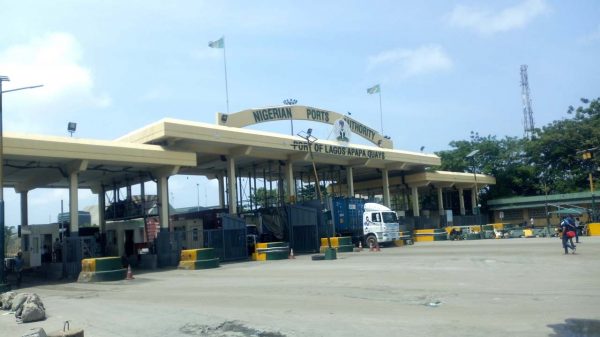 Ship owners in the country have heave a sigh of relief as the Nigerian Ports Authority (NPA) waves dues on vessels coming for dry-docking and maintenance on the nation’s territorial waters.
Ship owners in the country have heave a sigh of relief as the Nigerian Ports Authority (NPA) waves dues on vessels coming for dry-docking and maintenance on the nation’s territorial waters.
This move by the maritime industry watchdog is expected to attract more vessel owners to Nigeria rather than patronizing foreign ship repair yards with attendant loss of capital flight.

NPA, in a letter exclusively obtained by The Guardian dated 6th August 2019, with reference no HQ/AGM/T&B/OP/690, declared that henceforth vessels coming for dry-docking and maintenance but not making any operational movements would no longer be charged the Gross Registered Tonnage GRT).
In view of the recent development, stakeholders in the industry, including The Marine Club of Nigeria, Ship Owners Association of Nigeria, Nigerian Chamber of Shipping among others have commended the Federal Government for its intervention on lingering high charge practices against ship owners plying the Nigerian territorial waters. They also commended Elshcon Nigeria Limited, an Integrated Maritime Logistics and Fabrication Company for drawing the attention of the NPA to this practice.

The groups noted that the Nigeria would have suffered a great loss had it not been for the timely intervention of the NPA, which had earlier forced many ship owners to look elsewhere outside the country.

It would be recalled that Elshcon had recently alerted the NPA of an ongoing practice which made ship owners in Nigeria abandon the country’s shipyards to patronize those of other African countries due to persistent high fees foist on them to pay.
The company had sought to tow its 4000-Gross Tonnage off-shore barge to the Lagos dry dock for repair, being the only shipyard that has the capacity to handle such a big vessel in the country.
However, they discovered that despite the fact that the voyage was for repair and not for commercial or trading purpose, it was still required to pay the same full ship dues that commercial voyage ships pay, a development that has informed the decision of ship owners in Nigeria to head to ports located outside the country such as Tema Port, Ghana, Namibia Port, among others, to repair their ships.
Uncomfortable with this trend, Elshcon alerted NPA of the development via a letter dated 28th May 2018 indicating the need to halt such dues to encourage local dry docking.
Responding, NPA, in a letter signed by the Assistant General Manager, Tariff and Billing, Mrs L.T Gukas, stated: “With respect to vessels coming for dry-docking and maintenance but not making any operational movements, the volume conversion and interpolation of GRT shall not be applicable to such operations…vessels that have made first entry into any Nigerian Port and re-enters any other Port on the same voyage (such as service boats) shall pay the following rates and these rates are also applicable for vessels coming for repairs and maintenance: Ship Dues: $0.938 * 8GRT + 1176; $160.89 Per Voyage”
Commending the Federal Government for the timely intervention, and the management of Elshcon for bringing the issue to the notice of the NPA, the Marine Club of Nigeria, Ship Owners Association of Nigeria and the Nigerian Chamber of Shipping noted that the new measures would be beneficial for both the maritime industry and the local shipyards in the country.
“This the feat is one to which the maritime industry and the local shipyards shall remain grateful for, as it serves as a win-win situation for all parties affected,” they said.
The Chairman and Chief Executive Officer of Elshcon Nigeria Limited, Dr. Emi Membere-Otaji emphasized the need for the regulatory bodies to entrench practices that will boost the maritime sector, rather than one that will stifle and mitigate the progress. He, however, commended the Nigerian Ports Authority for their timely understanding of the situation and intervention, adding that the economic gains of this key decision cannot be quantified, as a good number of vessels will now return back to the country territorial waters and consequently increase employment and stimulate the nation’s economy.
 MMS PLUS NG – Maritime, Aviation, Business, Oil and Gas News Online Newspaper with coverage in Maritime, Oil and Gas, Aviation, Power and Energy as well as Financial News
MMS PLUS NG – Maritime, Aviation, Business, Oil and Gas News Online Newspaper with coverage in Maritime, Oil and Gas, Aviation, Power and Energy as well as Financial News









